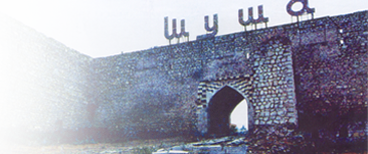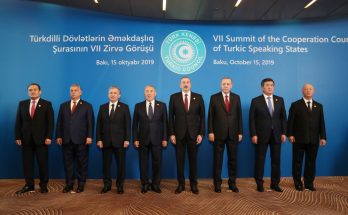
After the aggravation of the situation on the contact line of Azerbaijani and Armenian troops in recent days, dozens of volunteers appealed to the Azerbaijani Armed Forces expressing desire to fight against Armenia as part of the Azerbaijani army.
Those who appealed include persons who passed military service, got higher education, as well as persons under 18 and elderly people.
The appeals indicate willingness to become volunteers in the case of war. Alongside with Azerbaijanis, citizens of foreign countries, including Turkey are also among the appealed persons, who also expressed their willingness to become volunteers in the case of war.
Gratitude was expressed to all the appealed persons and it was stressed that there is no necessity yet, as Azerbaijan has a strong army that is able to restore the country’s territorial integrity.
The situation remains tense on the contact line. Earlier the head of the press service of Azerbaijani Defense Ministry, Lieutenant-Colonel Vagif Dergahli told Trend that most ceasefire violations are observed in the directions of Fizuli, Agdam, Terter, Goranboy, Khojavend and Jabrayil districts.
Dergahli emphasized that the number of truce violations and intensity of shootings have increased in recent days. Thus, the ceasefire was violated 2000 times from January 21 up until now. In all cases, the shooting was countered by return fire.
The OSCE Minsk Group co-chairs expressed their deep concern over continued violence in the region, according to the organization’s statement on the results of the Paris meeting between Azerbaijani Foreign Minister Elmar Mammadyarov and Armenian Foreign Minister Edward Nalbandian.
The co-chairs stressed that recent incidents undermine negotiations and diminish the prospects for peace.
In addition, U.S. State Department Deputy Spokesperson Marie Harf said at a press briefing on Jan.24 that the use of force will not resolve the Nagorno-Karabakh conflict.
“We have seen the reports and regret any loss of life anywhere, but certainly here as well. Our position remains that the use of force will not resolve this conflict. We call on all parties to refrain from the use or threat of force,” Harf said.
The conflict between the two South Caucasus countries began in 1988 when Armenia made territorial claims against Azerbaijan. Armenian armed forces have occupied 20 per cent of Azerbaijan since 1992, including the Nagorno-Karabakh region and seven surrounding districts.
Azerbaijan and Armenia signed a ceasefire agreement in 1994. The co-chairs of the OSCE Minsk Group, Russia, France and the U.S. are currently holding peace negotiations.
Armenia has not yet implemented the U.N. Security Council’s four resolutions on the liberation of the Nagorno-Karabakh and the surrounding regions.
Trend.az




